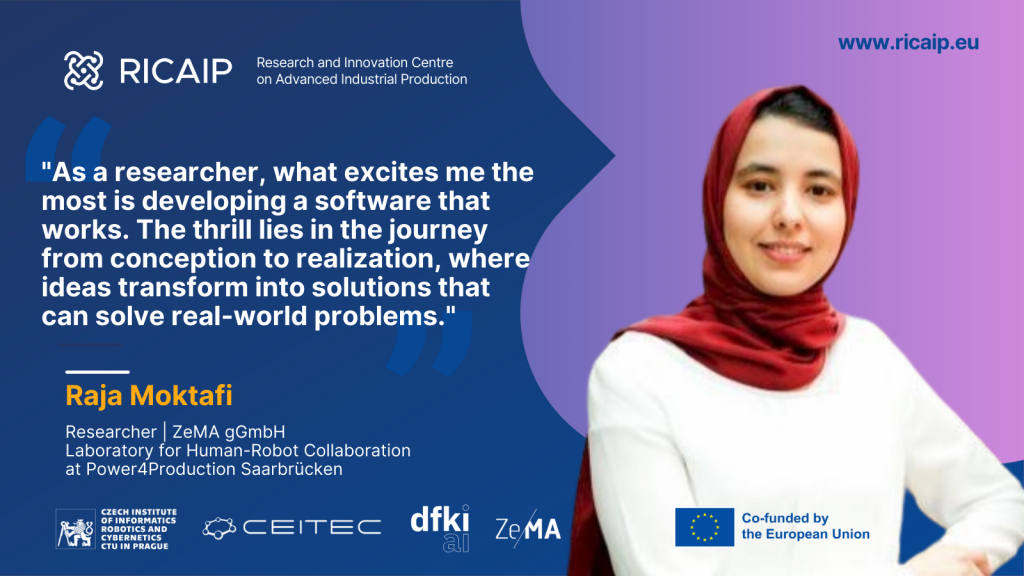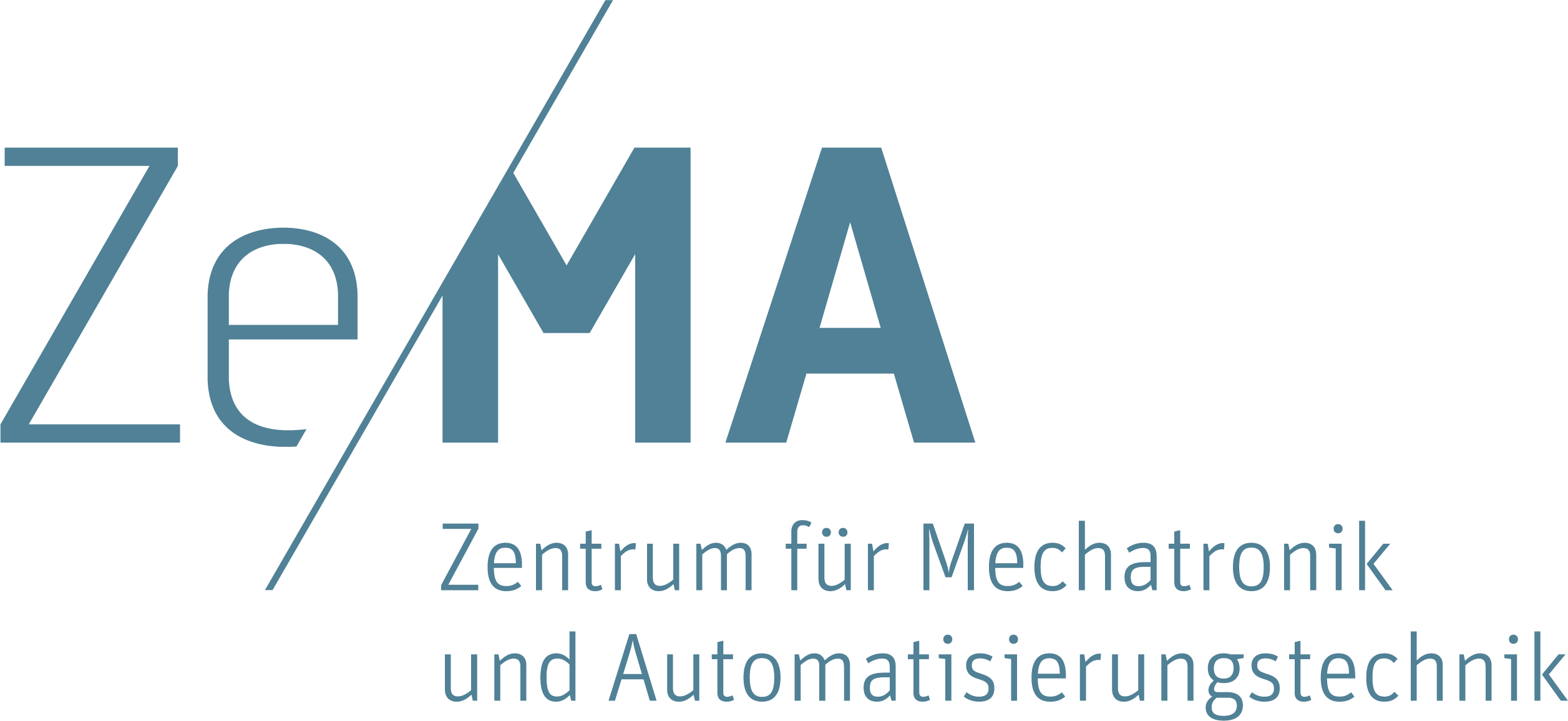Research focus: Human-robot collaboration
Raja Moktafi works as a researcher at ZeMA, Center for Mechatronics and Automation Technology in the Robotics group, since September 2023 in Saarbrücken, Germany. She is the project manager of RICAIP in ZeMA and oversees the testbed of human intention recognition for human robot collaboration. Raja’s academic journey led her to pursue a Master’s degree in Technical Systems at University of Applied Sciences Ruhr West (Campus Mülheim), which she successfully completed in 2020. During her Master’s thesis at Krones AG, she created a machine learning-based software integrated with a camera system for inspecting and ensuring product quality. The software effectively identifies and measures the angle of inclination of containers on a conveyor belt, detects any damages inside boxes destined for packaging, and verifies the condition of boxes in the presence of foreign particles. Afterward, Raja has embarked on a career in the industrial sector for three years in Krones AG, focusing on machine learning, particularly in supervised learning. And programming industrial robots, particular motion control and safety. She has implemented safety protocols that ensure the well-being of human operators. This involved emergency stops mechanisms, and fail-safe algorithms to minimise risks in industrial settings.
What do you find the most challenging as a researcher?
As a researcher that specialize in AI and robotics, I face challenging situations, like: Keeping up with the rapid advancements within AI, which calls for constant sift via an extensive range of potential or beneficial technologies. This necessitates ongoing reading and learning from various resources such as scientific articles, blogs and code repositories. Additionally, finding and building sturdy collaboration between researchers from diverse disciplines to solve complicated research problems.
What do you find the most promising/exciting as a researcher?
As a researcher what excite me the most is developing a software that works. The thrill lies in the journey from conception to realization, where ideas transform into solutions that can solve real-world problems. A journey filled with discussions, searching, coding and bugs fixing.
What do you find most challenging as a female young researcher in a rather male dominated field?
There are many challenges that a female researcher might face, which, for now doesn’t apply to my situation, such as securing equal opportunity for advancement and recognition. Another potential struggle could be building a stable and diverse network.



